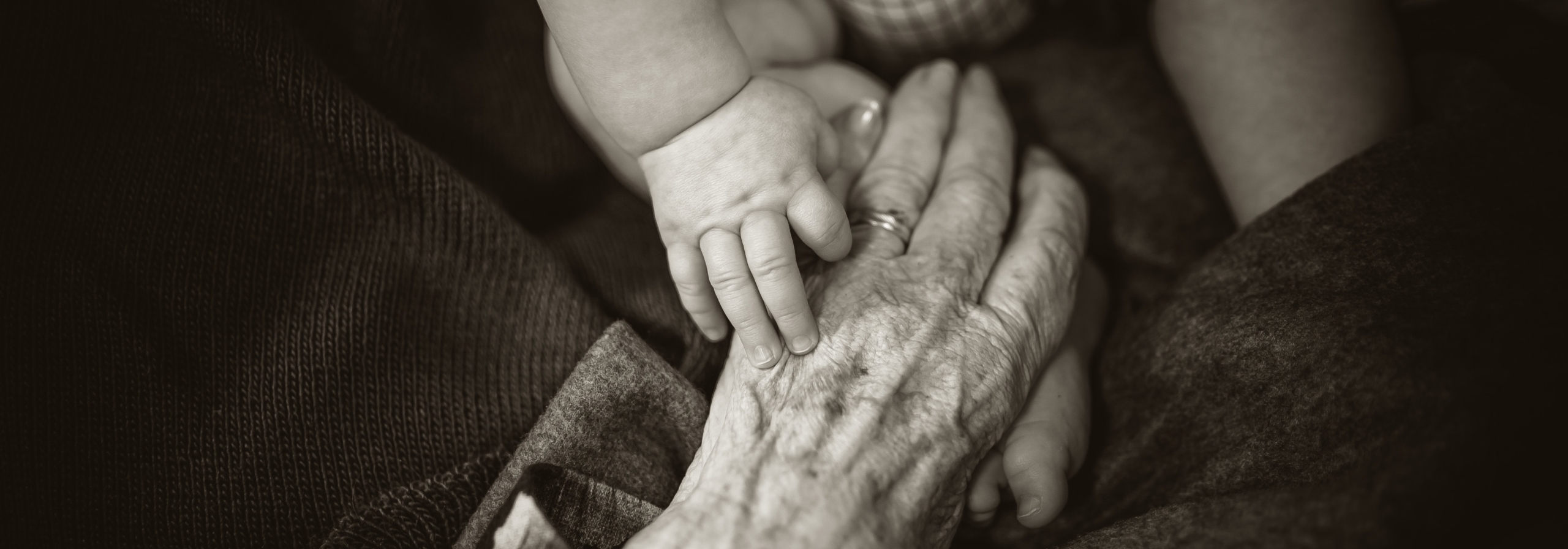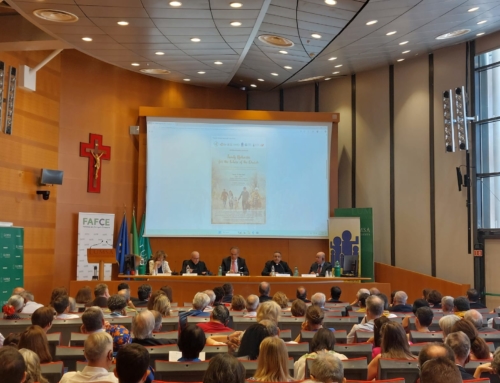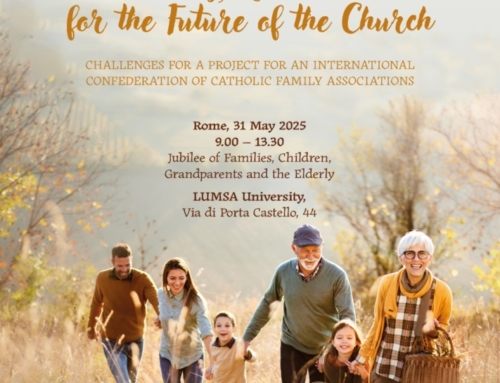a
When science and faith meet
Interview with biologist Vincent Kemme on the question of euthanasia
a
Mr. Vincent Kemme is a biologist from the Netherlands, trained in the relationship of science and faith, with supplementary studies in theology, philosophy and bioethics. Eleven years ago he founded ‘Biofides‘, an apostolate on biology, faith and ethics. In that capacity, he advises the Belgian Catholic Medical Association and the presidency of the World Federation of Catholic Medical Associations, based in the Vatican. Mr. Kemme’s dedication to protection of human dignity, especially at the end of life, prompt us to discuss the role of families in providing love and care for elderly.
1. What led you to found Biofides (an apostolate on biology, faith, and ethics) and what are your hopes for the future in this field?
Vincent Kemmel: During my studies, I came to the conclusion, on reasonable grounds, that God exists and since then I started living this idea of his existence and his concern about what we do with our lives. As a catholic biology student, I’ve started asking questions – on creation, evolution – remembering that biology and faith are interconnected by reason. We have theology which is rational evaluation and approach to Revelation, accompanied by philosophy of reasoning upwards (metaphysics and theology) and downwards (philosophy of nature or ‘science’). My role is to communicate what science and theology, in dialogue with each other by philosophy, came about in an understandable way.
2. Giving your experience as the editor in chief of the Belgian Catholic Medical Magazine, Acta Medica Catholica, of the Belgian Catholic Medical Association St. Luke, and assistant to the presidency of the World Federation of Catholic Medical Associations what are your thoughts on the ongoing challenges Catholic medical professionals face when it comes to the issue of dying with dignity in the hospitals and the new practices of instructing euthanasia over the phone (Ireland)?
VK: There are few concerning aspects and practices to these questions which make me feel not optimistic for the near future. Today, we have so many physicians who are reluctant to call themselves catholic or christian and who often have lack of faith and knowledge of it, related to these issues. First thing that I am working on is to inform Catholic physicians on catholic medical ethics and more philosophical questions. In terms of new practices of euthanasia today in Belgium there is only one congregation, the Littler Sisters of the poor, who still oppose political pressure to introduce euthanasia in catholic institutions. These practices are the result of countries falling for secularism and the culture of death and secularization which is followed by legislation. Today we are in need of re-evangelization of the whole culture which is a long term project. In our efforts, we must remember that our kingdom is not of this world and this notion would help us not to be discouraged.
3. As you mentioned during the FAFCE member Family Solidarity Webinar, education, based on the knowledge of the faith and the Church, plays an important role in promoting human dignity. Based on your experience and studies in theology, philosophy, and bioethics, what is the role of education in understanding the dangers of euthanasia?
VK: Without knowledge and understanding, a human being goes astray. There are three types of knowledge we must take into account: scientific / medical, philosophical and theological knowledge. In order to know how science and theology are related to each other, we must have good knowledge of the Bible and the Catechism of the Catholic Church which involves better catechization within the the family, in schools, parishes (for adults), various catholic movements and communities and family associations and networks. This way we can overcome the fact that we live in a superficial, materialistic and agnostic society where only scientific and technological education is valued and often used for purely economic goals.
4. How can Catholics engage to protect the dignity at the end of life? What are your advices for lay people promoting the solution of palliative care in their respective legislation?
VK: Since the family is the nucleus within the Church, we should first start within our own family and friends circle by living holy life which includes, among others, prayer, sacraments, growth, personal holiness and being witnesses to the faith. If there is faith within the family and among lay people, the dignity of human life becomes clear to us and we would distance ourselves from practices like euthanasia and choose palliative care instead. Additional dimension is education – providing answers, accompanied by love, to people who don’t share our beliefs, including engagement in the fields where God calls you to have an influence such as education, science, medicine and social movements of all sorts. In order to achieve this, we need to develop a personal relationship with God so we can discern where He calls us to contribute to the cause of life. Lastly, if it’s possible to influence politics, but always remembering that legislation is the result of what the society as a whole believes. Changing political systems will take time – it took the first Christians three centuries to christianize the Roman Empire.
5. In terms of challenges COVID 19 pandemics unveiled, how do you see the role of family in providing care for elderly based on intergenerational solidarity?
VK: Generational context within families can be great witness of faith. First there has to be faith and prayer in the heart of every individual, then in a married couple (bearing in mind that marriage is a triangle relationship between God, man and woman), then in grandparents whose love “till death do them part” is witness of loyalty to the younger generation. If all parents educate their children on love for elderly we can, as humanity, learn a lesson that our lives are a gift and therefore not entirely in our hands.
Interview carried by Ivana Geto, FAFCE Advocacy Intern
The pandemic has unveiled that families were the first respondent in providing care for elderly, especially combating the issue of loneliness. As FAFCE’s President, Vincenzo Bassi, said: “Family associations can play a key-role in overcoming the current ways we take care of the elderly, by creating new structures of solidarity in our communities. Yet, in order for elderly persons to stay in their family, it is crucial to remove all obstacles families face when taking care of their most vulnerable members.”. While planning our future and recovery after COVID-19 pandemic, which should include recognition of care families provide for elderly, it is important to remember the Pope Francis words: “When the elderly are not cared for, there is no future for the young”.







